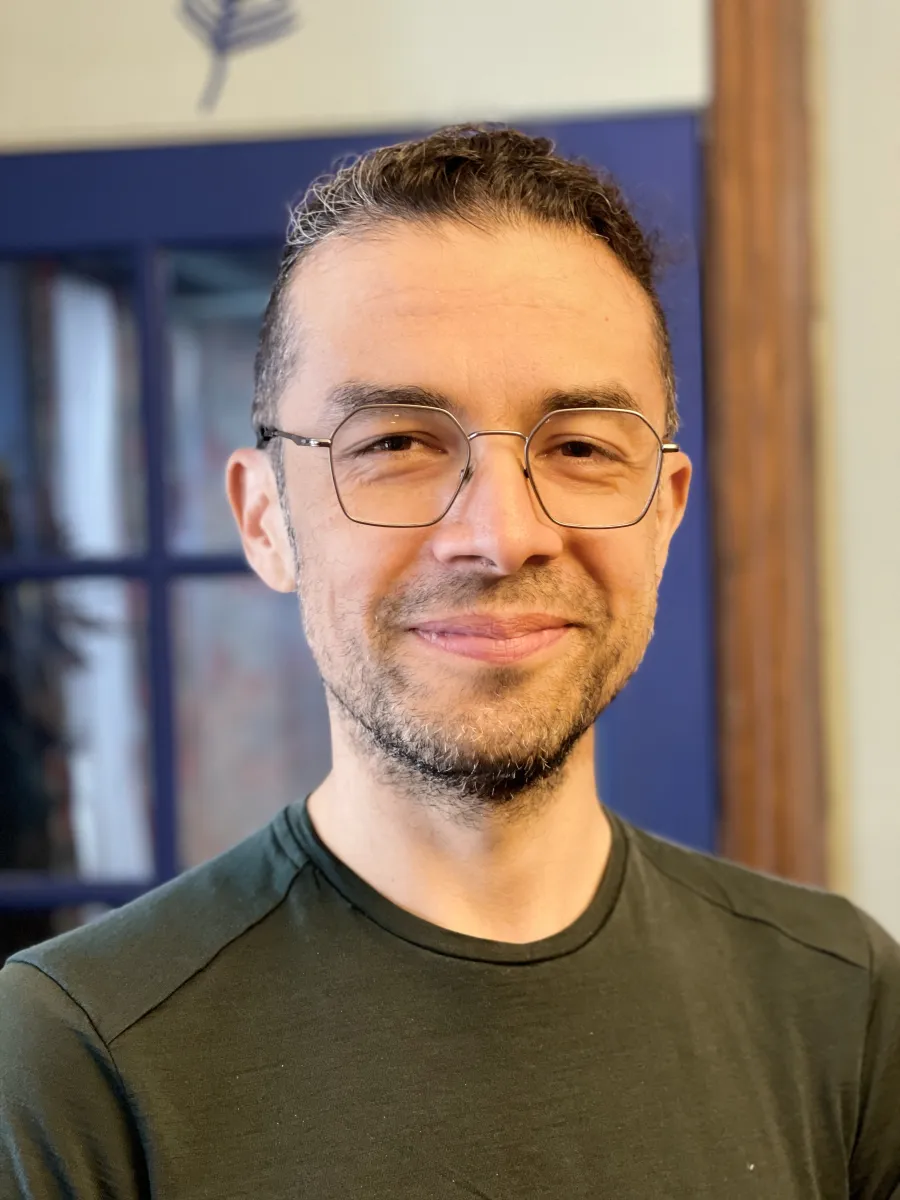By the Book: Roberto Vargas

Roberto is the Head of Research and Instruction and Humanities Librarian. He is also working toward a Masters' degree in Philosophy at the European Graduate School, and is slowly trying to introduce inefficiency, slowness, and exnovation in his life. His favorite part of the day is biking to campus as the sun rises.
What are you reading these days? I am currently reading books by Jodi Dean and Denise Ferreira da Silva. I'm reading The Communist Horizon by Jodi Dean and Unpayable Debt by Denise Ferreira da Silva.
Describe your favorite place to read on campus. I love reading in that space right where campus ends and my home begins :) but also underneath the tree in front of the library.
Is there a book you've read multiple times? The Technological Society by Jacques Ellul and Autobiography of Red by Anne Carson. Both are very different but both allow the type of slow reading I enjoy. Although Ellul's book was written 60 years ago, his description of our desire to treat efficiency as an end in itself ("to always find the best way") still resonates. Carson's novel is beautiful, and Geryon's questions always make me pause and reflect.
Is there a book you pretend to have read? Marx’s Grundrisse but after this gets published I can pretend no longer.
Who is your favorite author? Simone Weil, Anne Carson, Cedric Robinson and Jose Carlos Mariategui. Each author came at a different time in my life and they have remained constant even when "relevancy" is not the main focus.
What is the latest book you could not finish even though you thought you should? Derrida’s Of Grammatology. I almost got through it but my arche-ignorance got the better of me. I think at this point other authors have analyzed and explained it well enough for me to read them instead.
What literary character would you most like to be friends with? Piranesi (Piranesi by Susanna Clarke). I admired his kindness and the love he has of his surrounding world while still having a contemplative life. He neither completely isolates himself inside his head nor ignores his interior life. Others might disagree but we might get into spoiler territory.
Do you have a literary nemesis? My literary nemesis are the book covers in the style of corporate Memphis art. No more please.
What is your favorite reading genre? Lyric essay and autotheory. I am not a native English speaker, but something happened about 10 years ago where I started to hear English differently and could appreciate the lyrical prose in a poem. I enjoy reading books in these genres out loud and hear sentences like:
Depression is one of the unknown modes of being.
There are no words for a world without a self, seen with impersonal clarity.
All language can register is the slow return
to oblivion we call health when imagination automatically recolors the landscape
and habit blurs perception and language
takes up its routine flourishes.
Autobiography of Red, Anne Carson
What book do you recommend most often? Olio by Tyehimba Jess. I read this book out loud when it came out and it started my love of poetry.
What book made an early impact on you and why? Octavio Paz's Labyrinth of Solitude and Gabriel Garcia Marquez's One Hundred Years of Solitude. When I read them I was young and solitude had always been equated with loneliness. Both of these books allowed for me to feel nostalgia for things that I had never experienced and let me explore solitude without feeling lonely.
What is one lesson you learned from a book that you think everybody should know? Jean-Pierre Dupuy wrote a book called: Economy and the Future. It is a philosophical work exploring language and its relation to the future. I think we should all stop and question when we read that a future, tool or reality is "inevitable." Usually those that abuse this word are the same people who want that future to happen. Inevitability is a feeling not a reality, I think.
What is the ideal number of books to own before it becomes overwhelming? I do not understand the question.



